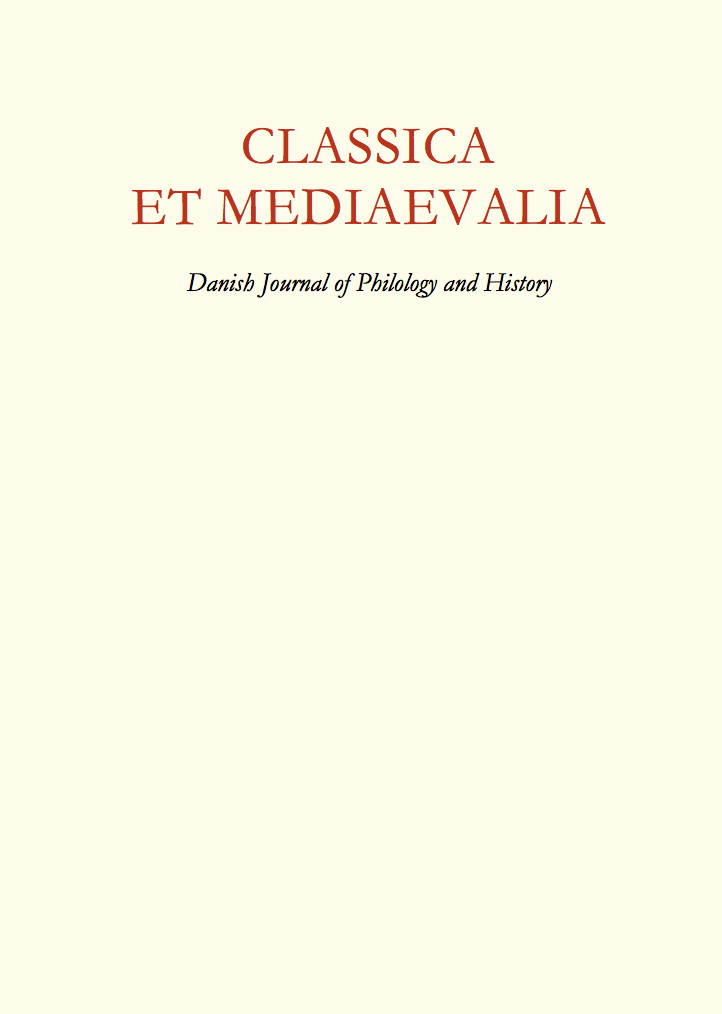From Cato to Plato and Back Again: Friendship and Patronage in John Tzetzes' Letters and Chiliades
DOI:
https://doi.org/10.7146/classicaetmediaevalia.v70i.129144Abstract
In many passages of his works, John Tzetzes likens himself to different figures from the Greek and Roman past in order to emphasise relevant features of his authorial persona. This strategy has been the subject of recent studies, which underscore the self-advertising agenda underlying Tzetzes’ constant reference to – and identification with – Greek and Roman models. Drawing on and going beyond this strand of literature, this paper pursues two main goals. First, it aims to situate Tzetzes’ references to these figures from the past within the broader sociocultural dynamics informing his self-fashioning strategy. To this end, it will focus on passages of his works dealing with friendship and patronage, two social practices that were crucial to any Byzantine writer. Second, the paper seeks to show that Tzetzes uses these figures to reflect upon his condition as a commissioned writer, skilfully employing them to create an authorial narrative that both spells out and plays with the constraints and contradictions stemming from his professional status.
Downloads
Published
How to Cite
Issue
Section
License
Copyright (c) 2021 Valeria F. Lovato

This work is licensed under a Creative Commons Attribution 3.0 Unported License.
Authors who publish with this journal agree to the following terms:
- Authors retain copyright and grant the journal right of first publication with the work simultaneously licensed under a Creative Commons Attribution License that allows others to share the work with an acknowledgement of the work's authorship and initial publication in this journal.
- Authors are able to enter into separate, additional contractual arrangements for the non-exclusive distribution of the journal's published version of the work (e.g., post it to an institutional repository or publish it in a book), with an acknowledgement of its initial publication in this journal.
- Authors are permitted and encouraged to post their work online (e.g., in institutional repositories or on their website) prior to and during the submission process, as it can lead to productive exchanges, as well as earlier and greater citation of published work (see The Effect of Open Access).





